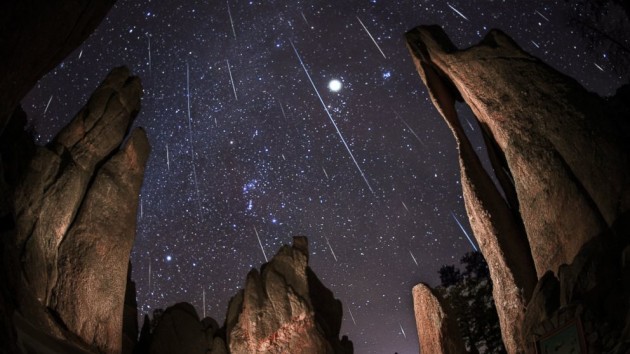
Aside from being the day before the Super Bowl, Feb. 6 wasn’t particularly memorable. According to NASA, however, a meteor explosion occurred that day, and it had the energy equivalent to 13,000 tons of TNT. It’s the largest documented event of its type since the Chelyabinsk meteorite in 2013, which left more than 1,600 people injured. Luckily, this latest event occurred in the air about 620 miles off the coast of Brazil, so nobody was hurt.
Although it might sound like it’s the end of the world, NASA says it’s no big deal. Even if the meteor did explode over a populated area, it wouldn’t have done much damage, according to Phil Plait, who wrote an in-depth article about the event for Slate. For comparison, the superbolide over Chelyabinsk exploded with a force of 500,000 tons of TNT, so the recent event was relatively tame.
The event like the one on Feb. 6 is fairly common, and NASA actually reports such occurrences on its Near-Earth Object Program page, which is extensive and a little terrifying (but not real-time). If you’re curious about NASA’s fireball and bolide reports, you can check that out at the source link below. There you’ll get information such as date, location, altitude, and even impact energy.
Is ignorance bliss? I think in this case, yes. I suppose if the meteor exploded over a populated city, you would have heard about it. But because it happened over the ocean, it was just another regular day—at least by NASA’s standards.
The sky is falling!
-
Meteor Injures 950 in Russia
Residents of Russia’s Ural Mountains region had a bit of a shock Friday morning as the caught video of a 10-ton meteor exploding over the region damaging buildings and injuring 950 people. As most eyes are focused on the approach of asteroid 2012…
-
“Blind Luck” Keeping Earth From Being Destroyed by an Asteroid
NASA is currently keeping tabs on near-Earth asteroids, and is even considering an unprecedented mission to capture and study one in low-Earth orbit. But there’s a possibility we could get an even closer look at a devastating space rock sometime…
-
Asteroid to make March flyby as close as 11,000 miles from Earth
An asteroid that scientists say flew by Earth a few years ago is going to do another flyby in March, only it’ll be much, much closer. So close that scientists say it’ll be observable to asteroid search telescopes. To be clear,…
-
Bad Weather? Watch the Orionid Meteor Shower Online Tonight
The Orionid meteor shower will put on a spectacular show of celestial rock and fire this weekend, and you can watch the whole thing online. The meteor shower will be at its peak, Space.com said, during the early morning hours…
-
Chelyabinsk meteor’s third anniversary is today, still a mystery
On a quiet morning on Feb. 15, 2013, a meteor entered the Earth’s atmosphere at a speed of 40,000 miles per hour (11 miles per second), exploding over Chelyabinsk, Russia with a reported force of 30 atomic bombs. In fact, the…
-
Explained: Here’s Why the Russian Meteor Packed Such a Big Punch
The world is ending. We’re on the cusp of total extinction. Grab your favorite smartphone and say goodbye. Asteroid 2012 DA14 hasn’t even flown by yet. Was today’s Russian meteorite a warning shot? No, but the science behind it is…
-
Felix Baumgartner’s Record-Breaking Jump Cleared for Oct. 14
Sunday, Oct. 14 could be the day daredevil Felix Baumgarnter skydives from 120,000 feet. Meteorologist Don Day, who has been overseeing weather conditions for the project, said Sunday looks favorable, with a likely window in the early morning hours —…



















